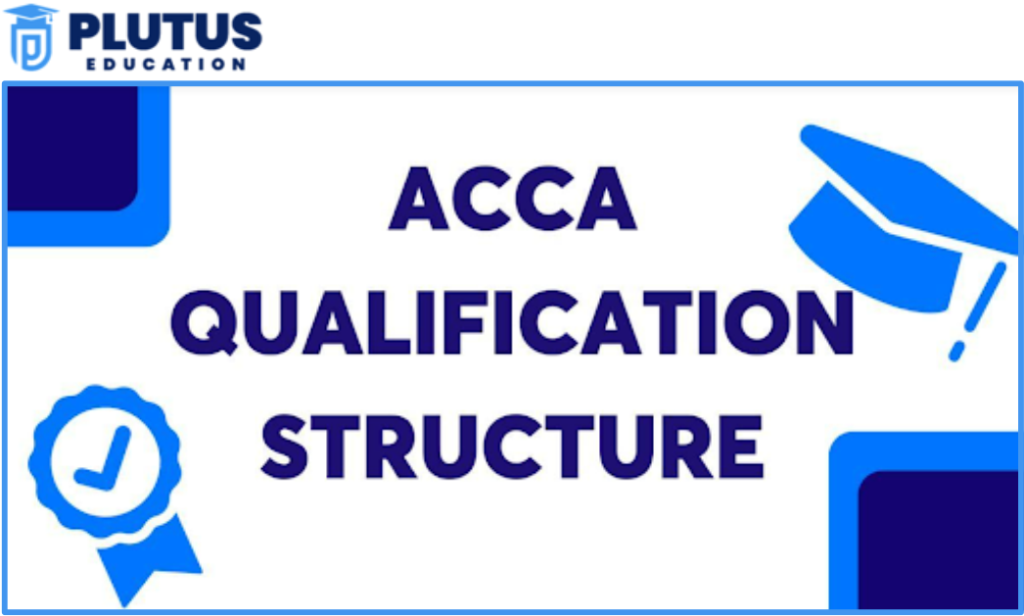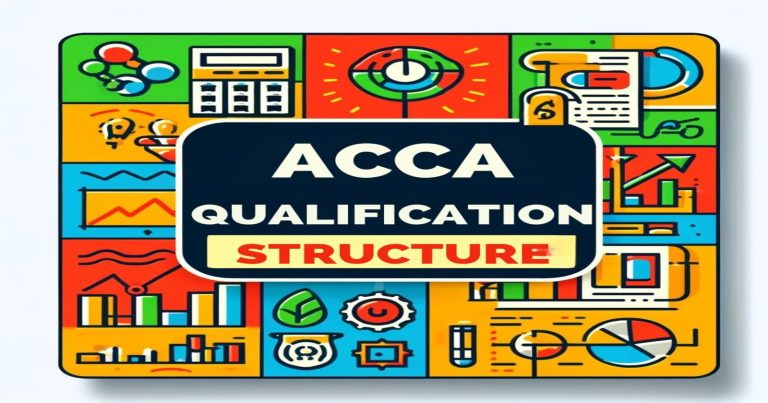The ACCA (Association of Chartered Certified Accountants) qualification is an internationally recognized certification. It is designed primarily for accountants and has a reputation for maintaining high standards. Earning this certificate grants you access to various job options in finance and accounting. This article is intended to help you comprehend the ACCA certification structure in the most straightforward manner possible. It will explain what the ACCA entails and how you can complete it step by step.
Why Pursue ACCA?
Obtaining the ACCA qualification has numerous benefits. First, it is internationally recognized, benefiting you from working in any nation. This means you’ll have additional work prospects in the accounting, finance, management, and consulting industries. Second, the ACCA qualification is highly valued by businesses, which can help you stand out in the employment market. Third, the qualifications are adaptable, so you can study while working. This makes it easy to fit into your schedule, whether you are just starting or have a job already.
The ACCA Qualification Structure
The demanding ACCA qualification structure makes many candidates afraid of it. But if we look at them individually, we must acknowledge them as a few simple hurdles to be crossed that will lead to a secure and financially stable career. If you are an aspiring accountant, learning about the ACCA qualification structure and ACCA Registration Process Guide for 2025 is essential. The ACCA qualification comprises three components: applied knowledge, skills, and strategic professionalism.
1. Applied Knowledge
The first phase of ACCA qualification, known as the Foundation Level, teaches candidates fundamental accounting and finance concepts. The Foundation Level covers the following three subjects:
- Business and Technology (BT): Understand the business environment and how technology impacts it.
- Management Accounting (MA): Understanding the basics of management accounting, including planning and control.
- Financial Accounting (FA): Grasp the fundamentals of financial accounting and reporting.
Who is Eligible?
Anyone can start at this level. This is where you should begin if you have no prior accounting experience.
2. Applied Skills
This is the second stage of ACCA qualification. This level builds on your fundamental knowledge by covering more complex accounting and business principles. The next layer is the Skills Level. As the name implies, this stage teaches applicants a variety of skills based on their core knowledge. Subjects at this stage are:
- Corporate & Business Law (LW): Understand the legal framework within which businesses function.
- Performance Management (PM): Understand management accounting and decision-making.
- Taxation (TX): Understand the fundamentals of taxation and how to apply them.
- Financial Reporting (FR): Increase your knowledge of financial accounting and reporting requirements.
- Audit and Assurance (AA): Learn about auditing principles and methodologies.
- Financial Management (FM): Understand how to handle an organization’s financial resources.
Who is Eligible?
This level is intended for individuals who have completed the Applied Knowledge level or have applicable qualifications/experience.

3. Strategic Professionals
The final tier of ACCA qualification is the Strategic Professional Level. This is the most important level since it teaches accounting skills and other professional abilities, such as leadership and management, which are incredibly important in business. This level has two types of subjects. The first category includes mandatory subjects, while the secondary set allows candidates to choose their expertise. This is the ultimate level, which emphasizes sophisticated professional abilities and strategic thinking.
Compulsory Subjects
- Strategic Business Leader (SBL): Enhance your leadership and strategic management skills.
- Strategic Business Reporting (SBR): Understand sophisticated financial reporting and business analysis.
Options (choose any two)
- Advanced Financial Management (AFM)
- Advanced Performance Management (APM)
- Advanced taxation (ATX)
- Advanced Audit and Assurance (AAA)
Who is Eligible?
This level is intended for students who have completed the Applied Skills level and are prepared to take advanced professional examinations.
The Ethics and Professional Skills Module
Aside from the three levels, there is an Ethics and Professional Skills Module (EPSM). This module is intended to create a strong sense of ethical behavior and professional abilities in an accountant. It focuses on the following:
- Ethical judgment and decision-making.
- Accountants’ professionalism and ethics.
- Effective communication and interpersonal abilities.
Practical Experience Requirements (PER)
To become an ACCA member, complete the Practical Experience Requirement. This includes gaining suitable job experience in financial or accounting roles.
- Obtaining at least three years (36 months) of supervised experience.
- Achieving ACCA performance objectives that are associated with the skills and information you acquired while studying.
| Level | Eligibility | Papers (#) | Content | Avg. Pass Rates |
| 1. Applied Knowledge | Completed Class 12 | 3 | Essential Accounting Techniques | 70% |
| Business Technology (FBT) | ||||
| Financial Accounting (FFA) | ||||
| Management Accounting (FMA) | ||||
| 2. Applied Skills | Completed B.Com or an equivalent course | 6 | Strong, Practical Skills | 45% |
| Taxation (TX) | ||||
| Performance Management (PM) | ||||
| Audit & Assurance (AA) | ||||
| Corporate and Business Law (LW) | ||||
| Financial Reporting (FR) | ||||
| Financial Management (FM) | ||||
| 3. Strategic Professional Level | Completed Level 2 | 4 | Technical Expertise, Ethics & Professional Skills | 45% |
| Essentials | ||||
| Strategic Business Leader (SBL) | ||||
| Strategic Business Reporting (SBR) | ||||
| Options (Pick 2) | ||||
| Advanced Financial Management (AFM) | ||||
| Advanced Performance Management (APM) | ||||
| Advanced Taxation (ATX) | ||||
| Advanced Audit & Assurance (AAA) |
Tips for Success
- Create a study plan and follow it. Use calendars and apps to keep track of your study time and notes.
- ACCA offers a variety of products, such as study manuals, practice tests, and online forums.
- Collaborate with our students studying for ACCA qualification to discuss problems, compare notes, and motivate one another.
- Don’t be afraid to approach tutors for assistance or to join online support groups.
- The EPSM is significant. Understanding ethical concerns will benefit you academically and professionally.
Conclusion
The ACCA qualification is a journey that requires dedication, endurance, and patience. However, with its adaptable structure and international reputation, it offers a rewarding career in accounting and finance. Whether you’re just starting or want to advance your career, understanding the ACCA qualification structure is the first step toward achieving your professional goals. Hopefully, the guide was able to help the candidates understand the ACCA qualification structure.
ACCA Qualification Structure FAQs
What is ACCA qualification?
ACCA is a globally respected qualification, ideal if you want to progress your career and become a professional accountant or work in an accountancy, audit, or tax firm.
Who is eligible for ACCA exam?
The students who have scored 65% in English & Maths and 50% in the remaining subjects in 10+2 are eligible for ACCA qualification. Other students are eligible to join ACCA through Foundation in Accountancy Route, which is an entry level qualification towards ACCA.
Is ACCA higher than CA?
As ACCA is globally recognised it is considered above CA. CA deals with India’s Accounting, finance and taxation systems which makes it great fit for India but not ideal for someone who wants to settle abroad.


